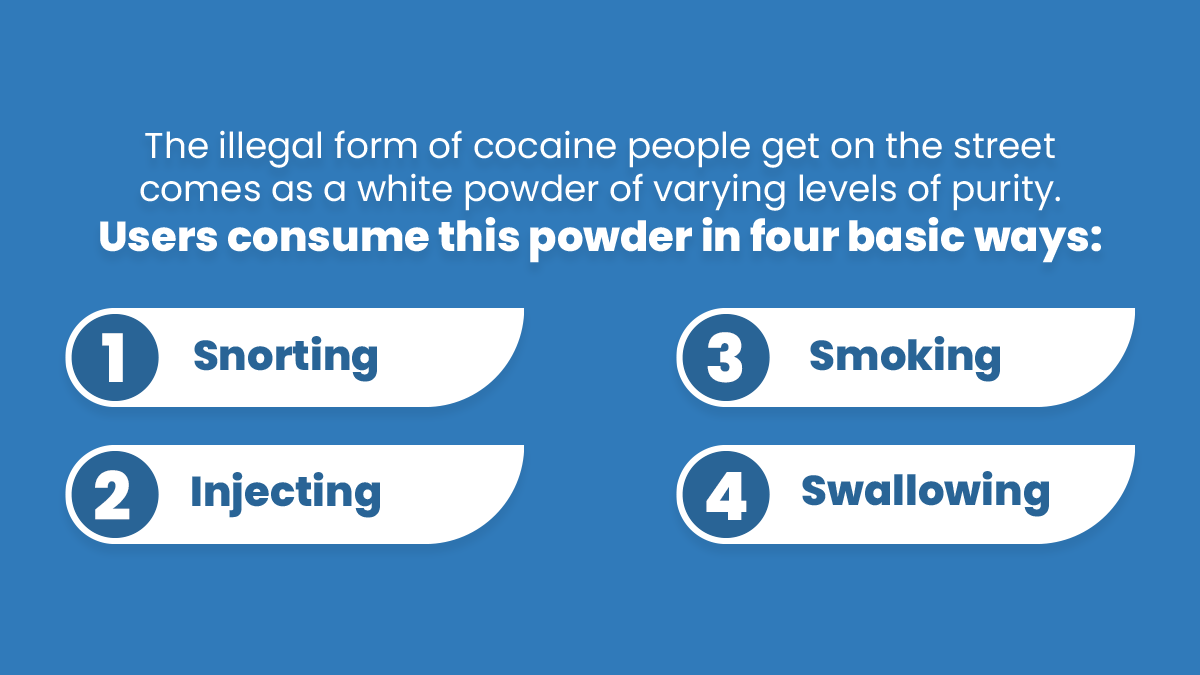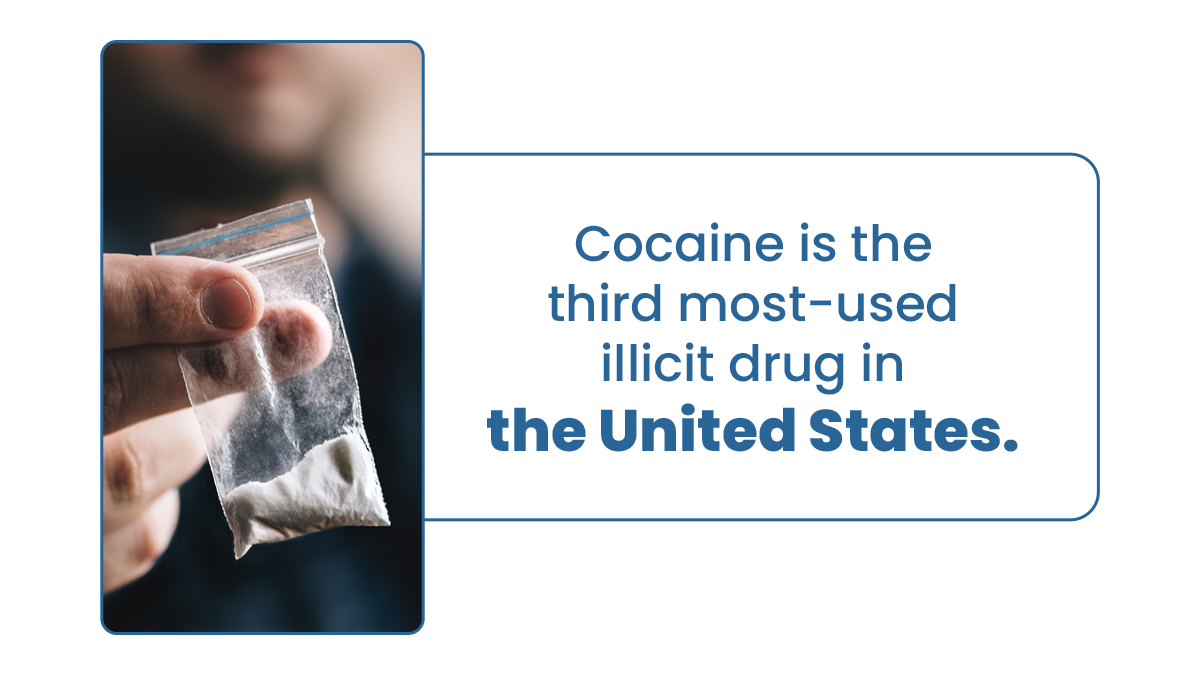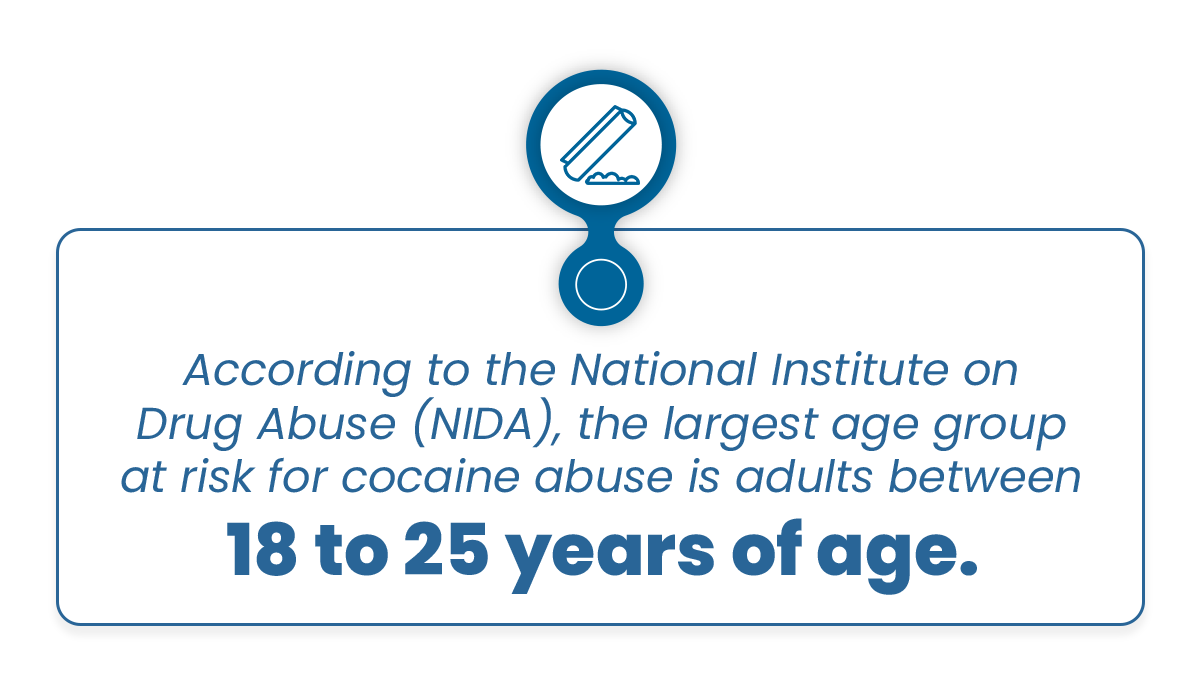Overcoming Cocaine Addiction in Little Rock, Arkansas
Cocaine is a highly addictive stimulant drug with serious physical and psychological effects on users. It is commonly sold in powder form and can be snorted, smoked, or injected.
Like many other communities across the United States, Little Rock, Arkansas, has been affected by the cocaine epidemic. According to the National Institute on Drug Abuse, cocaine use in the United States has increased since 2015. In 2019, an estimated 1.5 million Americans aged 12 or older used cocaine in the past month.
To combat the cocaine epidemic and its associated problems, many communities have implemented drug prevention and treatment programs. If you want effective substance abuse treatment plans, contact The Haven Detox-Little Rock.
Treatment Services
There are several treatment options available to help individuals overcome cocaine addiction. These options may include the following:
- Behavioral Therapies: Behavioral therapies, such as cognitive-behavioral therapy (CBT) and contingency management (CM), effectively treat cocaine addiction.
- Medication-Assisted Treatment: Some medications can help manage withdrawal symptoms and reduce cravings. Get effective MAT treatment from our rehab center.
- Support Groups: Support groups, such as Cocaine Anonymous, can provide individuals with a sense of community and support as they overcome their addiction.
- Residential Treatment Programs: Residential programs like inpatient rehab provide a structured environment and intensive therapy to help individuals overcome their addictions.
- Outpatient Treatment Programs: Outpatient treatment programs offer therapy and support on a part-time basis, allowing individuals to continue their daily activities while receiving treatment.
Remember, the most effective treatment plans are tailored to the individual’s needs and may involve a combination of these treatment options. Seek treatment as soon as possible to improve your chances of success at The Haven Detox-Little Rock.

Key Takeaways
Cocaine addiction is a serious condition that can lead to various physical and mental health problems.
- Cocaine addiction can cause many symptoms, including intense cravings, increased tolerance, and severe withdrawal symptoms.
- Causes that may contribute to cocaine addiction include genetic predisposition, social and environmental factors, and mental health issues.
- Some common risk factors for cocaine addiction are drug access, peer pressure, and lack of supervision.
- Cocaine addiction can have various physical and mental health effects, including increased heart rate and blood pressure, respiratory problems, and seizures.
- Several effective treatments for cocaine addiction include behavioral therapy, medications, and support groups.
With the right support and approach, you will find sobriety and live an addiction-free life. Get professional help from The Haven Detox-Little Rock by calling us at (501) 271-3342.
Symptoms of Cocaine Abuse
Cocaine addiction is a serious condition that can profoundly impact an individual’s physical and mental health, as well as their relationships, work, and overall quality of life. Here are some common symptoms of cocaine addiction:
- Increasing tolerance: Over time, individuals who use cocaine regularly may need higher and higher doses to achieve the desired effects.
- Withdrawal symptoms: When an individual stops using cocaine or tries to cut back, they may experience withdrawal symptoms such as fatigue, depression, anxiety, and intense cravings.
- Changes in behavior or mood: Cocaine use can cause changes in behavior and mood, such as increased agitation, irritability, impulsivity, and risk-taking behavior.
- Physical symptoms: Cocaine use can cause physical symptoms such as increased heart rate, elevated blood pressure, dilated pupils, and decreased appetite.
When to Seek Treatment…
If you are experiencing the symptoms mentioned above, you may have a cocaine addiction. Seek professional help if you suspect addiction. A healthcare professional can properly diagnose and help develop a treatment plan to address the addiction.
Individuals with cocaine addiction may want to quit or reduce their drug use but find it difficult or impossible to do so independently. But with the help of the right resource, it can be possible. Our professional team of doctors is available 24/7 to assist.
If a Loved One Needs Help…
If a loved one struggles with cocaine addiction, it could be difficult and stressful for you and your loved one. Encourage your loved one to seek help from a professional, such as a doctor, therapist, or addiction specialist. They can provide guidance and support in developing a treatment plan.
You can also create a supportive environment at home by removing any drugs or drug-related paraphernalia and encouraging healthy habits such as exercise and a nutritious diet.

Causes of Cocaine Addiction
Cocaine addiction can have various causes, including environmental and social factors. Exposure to stress, trauma, or abuse, as well as social and cultural influences, can contribute to the development of cocaine addiction.
Mental health conditions such as depression, anxiety, and personality disorders may increase the risk of cocaine addiction. Repeated use of cocaine can lead to changes in the brain’s reward system, making it difficult for a person to stop using the drug. There are some common causes of cocaine or drug abuse that you need to know.
The addictive potential is one of the causes of cocaine addiction. Cocaine is a powerful stimulant that produces euphoria and increased energy, leading to repeated use and, eventually, addiction. The drug works by increasing dopamine levels, a neurotransmitter associated with pleasure and reward, in the brain.
Repeated use of cocaine can lead to changes in the brain’s reward system, making the user more susceptible to addiction. Over time, the brain may become dependent on the drug to produce feelings of pleasure and reward, leading to compulsive drug use despite negative consequences.
Genetics, brain chemistry, and hormones may affect a person’s vulnerability to cocaine addiction. A family history of substance abuse may increase an individual’s risk of developing an addiction to cocaine.
Studies have shown that genes can influence how an individual responds to cocaine and how likely they are to become addicted. However, other factors such as environmental and social influences, stress, trauma, and personal experiences can also contribute to the development of cocaine addiction.

Risk Factors of Cocaine Addiction
It is important to note that risk factors can increase the likelihood of developing a cocaine addiction. Young adults and teenagers are more susceptible to developing a cocaine addiction due to the still-developing prefrontal cortex, which is responsible for decision-making, impulse control, and judgment.
Exposure to stressful or traumatic events, such as physical or sexual abuse, can increase the risk of cocaine addiction. There are many risk factors associated with cocaine addiction, including:
The availability of cocaine or drug access is a risk factor for cocaine addiction. Cocaine is a highly addictive substance and can be easily accessible in some communities. The more available a drug is, the greater the risk of individuals becoming addicted.
Being around friends or acquaintances who use cocaine can increase the likelihood of trying and becoming addicted to the drug. Peer pressure is one of the major risk factors for cocaine addiction, as individuals may feel pressure from their peers to experiment with drugs or continue using drugs to fit in or be accepted.
Being in social environments where drug use is prevalent can also increase the likelihood of trying drugs, including cocaine. Seeking help from a healthcare professional or addiction specialist is recommended for anyone struggling with addiction or substance abuse.
Lack of supervision can be a risk factor for cocaine addiction, particularly among young people. Unsupervised children or teenagers with limited parental guidance may be more likely to engage in risky behaviors, such as experimenting with drugs like cocaine.
This is because they may lack the knowledge or skills to make informed decisions about drug use and may be more vulnerable to peer pressure and other social influences.
Seeking professional help from a healthcare provider or addiction specialist can be essential in recovery.

Effects of Cocaine Abuse
Cocaine is a highly addictive substance that can seriously affect a person’s health and well-being. Cocaine addiction can lead to several physical and mental health problems, including heart disease, stroke, and mental health disorders.
Cocaine addiction can have serious effects on an individual’s safety, as well as on the safety of their community. This can be seen in various investigations involving drug trafficking and law enforcement, such as those conducted by the Drug Enforcement Administration (DEA), Arkansas State Police, and other agencies.
Some possible effects of cocaine addiction on safety include increased violence risk and legal consequences. Individuals may become involved in drug trafficking or other criminal activities to support their habit.
This can lead to arrests, search warrants, and investigations by law enforcement agencies, which can put individuals and their communities at risk.
Addiction leads to secrecy as people try to hide their addictions from loved ones. They may steal money to fund their addiction or lie about where they are causing a rift in the relationship.
The person may also become involved in criminal activity to get money to buy cocaine. This can lead to an arrest, which can further strain the relationship.
Cocaine addiction may have a negative impact on an individual’s employment, as it can affect their ability to perform their job duties, maintain relationships with coworkers and employers, and fulfill their responsibilities.
If you or someone you know is struggling with cocaine addiction, help is available. Our rehab center offers effective treatment plans along with counseling services to treat cocaine or any other type of drug addiction.
Cocaine addiction can cause several physical health problems, including:
- Cardiovascular problems: Cocaine increases heart rate and blood pressure, leading to heart attacks, strokes, and other cardiovascular problems.
- Mental health problems: Cocaine can cause paranoia, anxiety, and depression. It can also trigger or worsen existing mental health problems.
- Kidney damage: Cocaine can damage the kidneys and lead to kidney failure.
- Gastrointestinal problems: Cocaine can cause gastrointestinal problems, such as abdominal pain and nausea.
- Neurological problems: Cocaine abuse can cause seizures, stroke, and nerve damage.
Get Help
If you’re suffering from cocaine addiction, getting help as early as possible is essential. Cocaine addiction is a severe illness that can lead to many problems. Getting help as early as possible can significantly improve your chances of recovery. Call us to get started with treatment.
Our resources are available to help you overcome your addiction with evidence-based therapies and innovative treatments proven by medical science to effectively manage your addiction. Our admissions counselors can help you learn more about the disease and how to keep it out of your life. Contact us confidentially today.

Treatment of Cocaine Addiction
Cocaine addiction is a serious problem that can lead to devastating consequences. Fortunately, there are treatments available that can help people overcome their addiction and lead healthy, productive lives.
Medical Detox
Medical detox allows the body to eliminate a substance in a safe and supervised setting. This is usually done under the care of a doctor or other medical professional.
Detox can be an important first step in overcoming addiction, but it is not a cure. After detox, people will still need to address the underlying causes of their addiction through therapy, support groups, and other treatment options.
Cocaine addiction is a serious problem that requires professional treatment. Detox is often the first step in this process. Cocaine detox can be difficult and uncomfortable, but it is necessary to overcome addiction.


Dual Diagnosis Treatment
One effective treatment option for cocaine addiction is dual diagnosis treatment. This treatment addresses both the addiction and any underlying mental health disorders.
Dual diagnosis treatment can be very effective in treating cocaine addiction. It can help address the addiction’s root causes and provide the tools and resources needed to overcome them.
If you or someone you love is struggling with cocaine addiction, please seek professional help. Get dual diagnosis treatment at The Haven Detox-Little Rock in Arkansas to overcome addiction and get on the path to recovery.
Residential Treatment
Cocaine addiction is a serious problem that can ruin lives. Residential treatment can help people overcome their addiction and get their lives back on track.
Residential treatment facilities provide a safe and structured environment for people to detox from cocaine and begin the process of recovery. Treatment at a residential facility usually lasts for 30 days or more, and during this time, patients receive around-the-clock care from a team of medical and mental health professionals.
During treatment, patients will work on identifying the underlying causes of their addiction and developing healthy coping mechanisms to deal with stress and triggers. They will also learn how to build a supportive network of friends and family who can help them stay on track after they leave treatment.


Adjunct Therapies
Adjunct therapies are used in addition to or in conjunction with other treatments. In addiction treatment, adjunct therapies are often used to supplement traditional treatments, such as detoxification, medication, and behavioral therapies.
Adjunct therapies can address various addiction-related issues, including co-occurring mental health disorders, social and emotional problems, and physical health problems. Some commonly used adjunct therapies include:
- Art therapy
- Exercise
- Meditation
- Music therapy
Trauma programs for veterans include:
- Cognitive-behavioral therapy (CBT)
- Dialectical-behavioral therapy (DBT)
If you or someone you know is struggling with cocaine addiction, consider seeking treatment at a reputable addiction treatment center offering a comprehensive care approach that includes adjunct therapies. One such treatment center in Arkansas is The Haven Detox-Little Rock.
Frequently Asked Questions (FAQ)
How much cocaine is a felony in Arkansas?
In Arkansas, possession of any amount of cocaine with the intent to deliver is a felony offense. The severity of the felony charge and the potential penalties depend on the amount of cocaine involved.
For example, possessing less than two grams of cocaine intended to deliver is a Class C felony, which carries a potential sentence of three to ten years in prison and a fine of up to $10,000.
Possession of two to ten grams of cocaine with the intent to deliver is a Class B felony, which carries a potential sentence of five to 20 years in prison and a fine of up to $15,000.
What is a Schedule I drug in Arkansas?
In Arkansas, a Schedule I drug is a drug that is considered to have a high potential for abuse, no currently accepted medical use, and a lack of accepted safety for use under medical supervision. The possession, manufacture, distribution, and sale of Schedule I drugs are illegal under Arkansas law.
The following drugs are listed as Schedule I drugs in Arkansas:
Heroin
LSD
Marijuana (unless used for medical purposes)
MDMA (Ecstasy)
Peyote
Psilocybin (magic mushrooms)
Synthetic cannabinoids (e.g., K2 or Spice)
Synthetic cathinone (e.g., bath salts)
Mescaline
Ibogaine
It’s important to note that the classification of drugs into schedules can vary from state to state and change over time as new research emerges.
Find Hope and Healing at The Haven Detox-Little Rock
The Haven Detox-Little Rock in Arkansas is a place of hope and healing for patients struggling with alcohol, cocaine, or other substance addictions. Treatment for cocaine addiction typically includes behavioral therapy along with medication. Our detox center offers various services to help patients through the detox process, including group therapy.
Group therapy is an important part of the detox process, as it allows patients to share their experiences and feelings with others who are going through the same thing. This can be a very powerful experience for individuals, as it can help them to feel less alone and more supported.
We also offer various other services, including individual counseling, and education about addiction and recovery.
Call our confidential counselor at (501) 271-3342.




